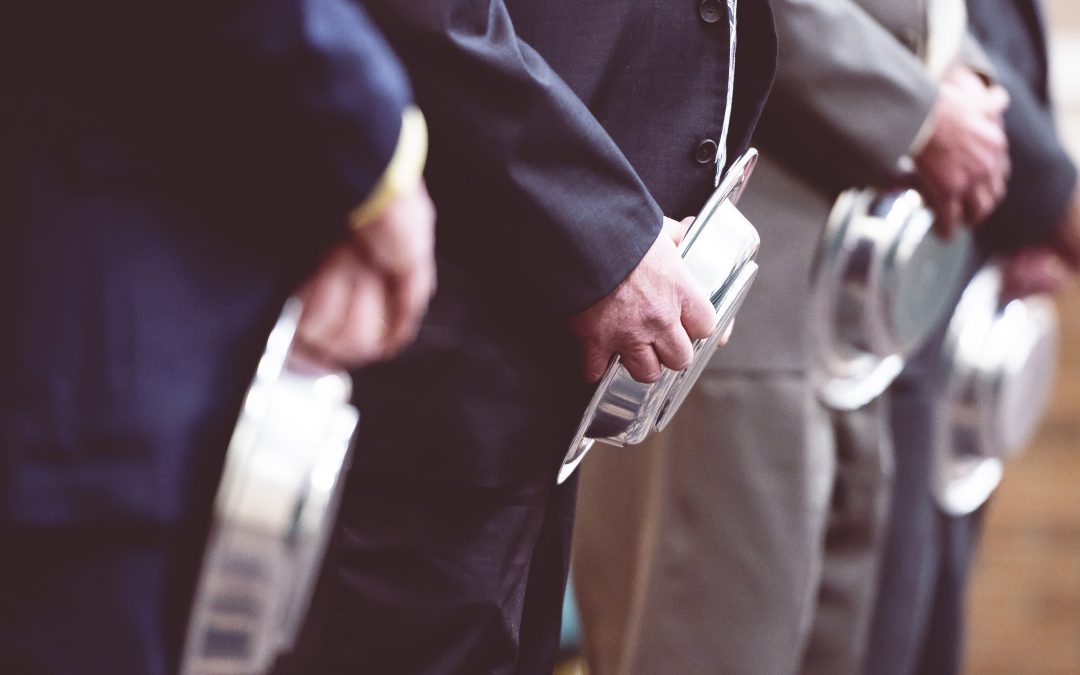I grew up in a Southern Baptist church. We went to Sunday school and attended worship regularly. I have clear childhood memories of those services. The people were kind and my Bible class teachers were morally upright. Though I can’t recall a lot of what the preachers said, I remember the piano, the altar call, the testimonials and a few times shouting which scared me as a young child. What I don’t remember much was the Lord’s Supper. I saw it so seldom that it didn’t make much of an impression on my young mind. I can’t remember if it was observed once, twice or several times a year. All I knew was that they were passing out little pieces of crackers and tiny cups of juice and I didn’t get any. We passed collection plates every Sunday. I saw what that was about, but the little bites of food were a mystery. Because I rarely saw it, I don’t remember much about it. At the time I didn’t understand what it was or why it was done. I certainly didn’t get the idea that it was all that important.
Later I learned what the Bible says about communion. Acts 20:7 says the disciples came together on the first day of the week for the very purpose of having the Lord’s Supper. Paul said the congregation is to “come together into one place” to observe it (I Cor. 11:20). This is the assembly of “the whole church” (I Cor. 14:23), and the Bible specifically warns against failing to assemble together (Heb. 10:25). I also learned that a contribution was to be taken up on Sunday. “Now concerning the collection for the saints, as I have given order to the churches of Galatia, even so do ye. Upon the first day of the week let every one of you lay by him in store, as God hath prospered him, that there be no gatherings when I come” (I Cor. 16:1-2). We are to have the Lord’s Supper and the collection every Sunday just the same as we have singing, praying and preaching when we come together to worship.
I learned all this after I started attending a church of Christ when I was about twenty years old. It all made sense then and it makes sense now. If the Bible says it, we should do it—all of it, consistently. That is what preachers wrote and preached about this back then. They were right.
Things have changed. When COVID struck, most churches panicked and blindly followed the exaggerated warnings of medical bureaucrats, devious politicians and dishonest media. They stopped coming together to worship and told themselves that they were assembling virtually online for worship on a temporary basis. A few of us tried to warn that this was unbiblical and would set a bad precedent. We were laughed to scorn and called radicals. Now years later the same preachers and elders who told their members to stay home are begging them to come back. But it’s not working. The pattern had been set. They got used to staying at home on Sunday and now they just “worship online.”
This is not all. Churches implemented various protocols to protect members from this deadly disease (although flu at the time was killing people by the thousands and they never went to such extremes to protect themselves against it). The CDC became the authority—the same CDC that ten years before warned churches about serving communion during flu season and especially during the swine flu epidemic. Churches uniformly ignored this “science.” But the increased power of social media, the diabolical cunning of politicians in an election year and our conditioned hypersensitivity to health threats convinced church leaders to make changes to “save lives” at church. Preachers prior to 2020 blasted denominational churches for offering drive-thru worship, but some of them began to advocate the same thing during the first months of COVID by telling members to drive to the building on Sunday and pick up the Lord’s Supper and drop off their contribution. When they decided to “reopen,” they had become convinced that their God-given immune system offered little or no protection and stopped passing the trays for the Lord’s Supper and the contribution plates and baskets. They began serving the Lord’s supper during worship with individual packets and put collection plates in the foyer. Some set up online giving. The contribution was taken out of the worship assembly and relegated to a drop box for those who casually exit the building.
 These practices have become entrenched in many congregations. The die has been cast. Elders and preachers jumped on the pandemic protocol bandwagon and now many of them don’t seem to know how to stop. How much longer will churches keep these distracting safety measures in place? Permanently? Many churches still will not pass collection baskets in the assembly but instead put them in the foyer for use after worship. They pile themselves into pews without feeling endangered (not to mention shop, eat out, work, and have family get-togethers) while they treat collection baskets as a threat to their lives! But the real tragedy is that they are raising up a generation of young people who never see anyone give in the worship assembly! I at least saw the Lord’s Supper often enough to have a vague memory about it, but these children will have no such memory of the Lord’s day collection at all if this practice continues!
These practices have become entrenched in many congregations. The die has been cast. Elders and preachers jumped on the pandemic protocol bandwagon and now many of them don’t seem to know how to stop. How much longer will churches keep these distracting safety measures in place? Permanently? Many churches still will not pass collection baskets in the assembly but instead put them in the foyer for use after worship. They pile themselves into pews without feeling endangered (not to mention shop, eat out, work, and have family get-togethers) while they treat collection baskets as a threat to their lives! But the real tragedy is that they are raising up a generation of young people who never see anyone give in the worship assembly! I at least saw the Lord’s Supper often enough to have a vague memory about it, but these children will have no such memory of the Lord’s day collection at all if this practice continues!
Educators say that visual learning is important with children. Does that advice apply here?
-Kerry Duke


